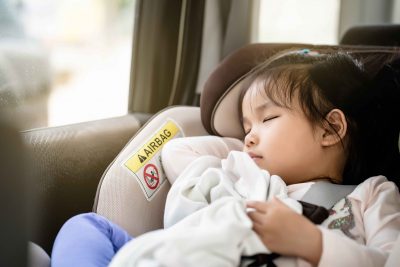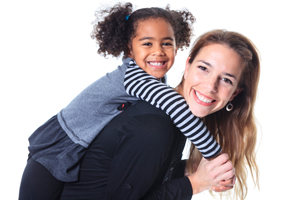Summer often means more time outside for kids and the possibility of more injuries, particularly concussions. Whether kids are falling off their bikes or skateboards or pretending to be Peter Pan and jumping off the front porch their risk for head injuries rises if they aren’t careful.
In the emergency department, we see many children who take a head bang or get their bell rung playing sports or just simply playing. These kids have possibly sustained a minor concussion, so it’s important that a concussion expert evaluate them before they return to play.
Parents need to remember that only a small number of children actually lose consciousness after a concussion. If you think your child has experienced a concussion it’s very important to seek medical treatment. There are common physical and functional symptoms that children may experience after a fall or hitting their head, which have been identified by concussion experts at St. Louis Children’s Hospital.
Physical Symptoms of Concussions
• Headaches
• Fatigue, seeming tired, trouble staying awake
• Trouble sleeping
• Lack of energy, slow-moving
• Blurry or double vision
• Sensitivity to noise or light
• Dizziness, feeling lightheaded
• Nausea
Thinking (Cognitive) Signs Indicating Concussions
• Not remembering how the concussion happened
• Becoming easily confused
• Slowness in thinking, seeming “foggy” or “zoned out”
• Difficulty paying attention
• Forgetfulness, memory problems
• More difficulty at school than normal
Emotional and Behavioral Signs Indicating Concussions
• Becoming easily annoyed or angry, seeming cranky and irritable
• Feeling worried or nervous
• Seeming emotional, crying more easily than normal
• Not seeming like himself/herself, personality changes
Because a concussion is also a functional diagnosis, it’s important to look beyond the physical signs. When a kid says I don’t have a headache or see double, they may still be experiencing some of the cognitive signs over a period of time. If a child has fallen hard enough to be dazed they need to rest the injured part of their body, which is their brain. Their daily skills should be monitored and parents should be aware of subtle symptoms like discomfort and crankiness and seek an evaluation from their primary care provider.
Returning to Activities After a Concussion
Until your child’s doctor or nurse approves their return to play after a concussion, it’s important to limit physical activity. Typically, kids who have experienced a concussion should be symptom-free for 10 to 14 days following a visit to the ER or their doctor.
Finally, the best way to prevent a concussion is to make sure kids are wearing appropriate safety gear when playing sports, always wearing a seatbelt in the car and wearing a helmet when riding a bike, skateboarding or other activity where head injuries are a risk.





Comments